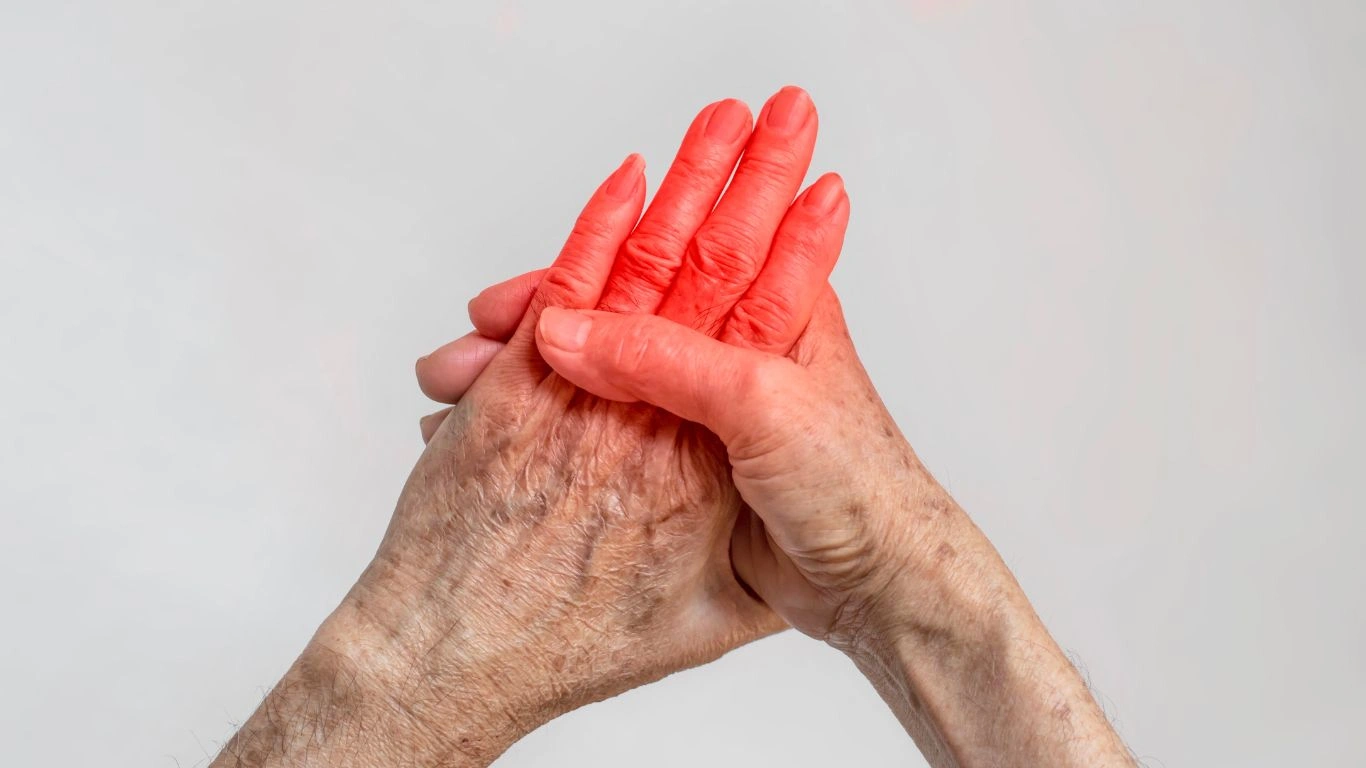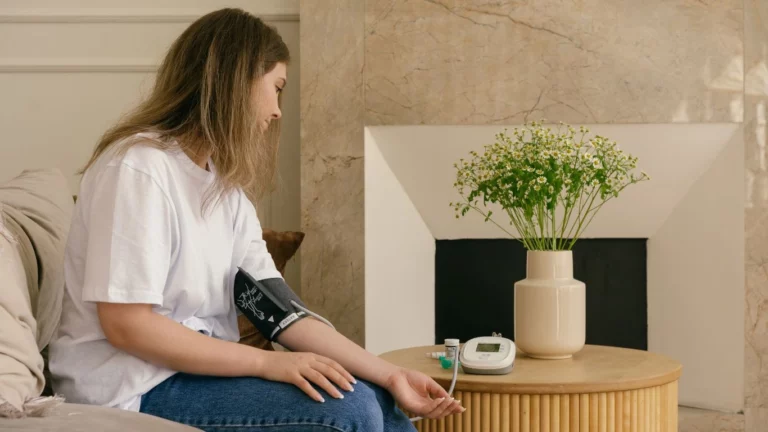Rheumatoid Arthritis Stress Relief: Powerful Relaxation Techniques That Work
Rheumatoid arthritis (RA) can be a challenging condition to manage, not just physically but emotionally as well. As a Rheumatology Nurse Practitioner, I’ve worked with many patients who have struggled with the emotional toll that RA can take on their lives. It’s not just about the pain and stiffness that come with joint inflammation, but also the stress that builds up over time. One of the most important things I’ve learned through my practice is the profound impact that managing stress has on improving the quality of life for people with RA. If you’re living with rheumatoid arthritis, it’s crucial to understand the role that stress management plays in keeping your symptoms under control and maintaining your overall well-being.
Understanding the Connection Between Stress and Rheumatoid Arthritis

It’s no secret that stress can affect our bodies in many ways. But did you know that it can actually worsen the symptoms of rheumatoid arthritis? There’s a strong connection between stress and the inflammatory response in our bodies, and stress can trigger or intensify flare-ups of RA. Stress activates our body’s fight-or-flight response, which in turn increases the production of inflammatory markers, like cytokines, that play a role in the inflammation of joints. This can lead to more pain, swelling, and discomfort, making it harder to manage your RA on a daily basis.
The Physiological Link Between Stress and RA
When you’re stressed, your body goes into a heightened state of alert. Hormones like cortisol and adrenaline flood your system, preparing you to either fight or flee from a perceived threat. While this is an essential survival mechanism, chronic stress can be harmful. Over time, high levels of cortisol can interfere with your immune system and inflammatory responses. For individuals with RA, this means that the stress you’re under can cause your immune system to attack the lining of your joints, leading to inflammation and damage.
Relaxation Techniques to Manage Stress with Rheumatoid Arthritis

As someone who works closely with patients, I’ve seen firsthand how powerful relaxation techniques can be in managing stress and improving the quality of life for individuals with RA. Incorporating relaxation into your daily routine doesn’t just reduce stress, it also helps to lower inflammation and improve overall health. Here are some of the relaxation techniques I recommend to my patients that are particularly effective for those with rheumatoid arthritis.
Deep Breathing Exercises
Deep breathing is one of the simplest and most effective ways to reduce stress. It can be done anywhere, anytime, and doesn’t require any special equipment. When we’re stressed, our breathing tends to become shallow and rapid, which can make us feel even more anxious. Deep breathing exercises, on the other hand, focus on slow, deliberate breaths, which can activate the body’s parasympathetic nervous system, helping us relax and bring down stress levels. I recommend starting with diaphragmatic breathing, also known as belly breathing, to calm your nervous system and alleviate the physical tension in your body.
- Find a quiet, comfortable place to sit or lie down.
- Place one hand on your chest and the other on your abdomen.
- Inhale deeply through your nose, letting your abdomen expand (not your chest).
- Exhale slowly through your mouth, letting go of tension with each breath.
- Repeat for 5-10 minutes, focusing on the rhythm of your breath.
Progressive Muscle Relaxation (PMR)
Progressive muscle relaxation (PMR) is another technique that can help reduce stress and improve muscle relaxation, which is especially helpful for people with RA who may experience muscle tightness or spasms. PMR involves tensing and then relaxing different muscle groups in the body to promote a state of deep relaxation. This can help you become more aware of where you’re holding tension, which is key in managing the physical manifestations of stress.
- Start by sitting or lying down in a comfortable position.
- Take a few deep breaths to relax and focus on your body.
- Begin with your feet, tensing the muscles for 5-10 seconds, then release and relax them for 20-30 seconds.
- Move through the rest of your body, working your way up to your neck and shoulders.
- Finish by taking a few deep breaths and enjoying the relaxation in your muscles.
Mindfulness Meditation for Stress Reduction

Mindfulness meditation is a practice that has gained a lot of attention in recent years, and for good reason. It’s incredibly effective at helping individuals manage stress by training the mind to stay present in the moment, rather than worrying about the future or dwelling on the past. For people with rheumatoid arthritis, mindfulness can be especially helpful in reducing the mental strain that often accompanies chronic pain.
In my practice, I’ve recommended mindfulness meditation to many of my patients, and they’ve found it to be incredibly beneficial. Mindfulness helps break the cycle of stress and pain by encouraging you to acknowledge your sensations without judgment. By focusing on your breath, body sensations, or even sounds around you, you can create a mental space where you feel more grounded, calm, and in control.
How to Practice Mindfulness Meditation
If you’ve never tried mindfulness meditation before, here’s a simple way to get started:
- Find a comfortable seated position, either in a chair or on the floor with a cushion.
- Close your eyes or soften your gaze, and take a few deep breaths to settle into the moment.
- Bring your attention to your breath, noticing the sensation of air entering and leaving your body.
- As thoughts arise, simply acknowledge them without judgment and gently return your focus to your breath.
- Start with just a few minutes each day and gradually increase the time as you feel more comfortable with the practice.
The Role of Exercise in Stress Management for RA Patients

When it comes to managing rheumatoid arthritis (RA), exercise is often seen as a way to keep your joints flexible and improve overall physical health. But what many people don’t realize is that regular exercise is also one of the best tools for reducing stress. As a Rheumatology Nurse Practitioner, I’ve seen firsthand how exercise can help patients lower their stress levels while improving their symptoms. It’s a win-win, right?
How Exercise Reduces Stress
Exercise, especially when done consistently, is a fantastic way to reduce the stress that can exacerbate RA symptoms. Physical activity triggers the release of endorphins, those wonderful “feel-good” hormones, which act as natural mood boosters. This is important because when we’re less stressed and in a better mood, we’re more likely to cope better with the challenges RA throws at us.
But beyond just lifting your spirits, exercise can also enhance the body’s ability to manage pain and inflammation. By increasing blood circulation, improving oxygen flow, and strengthening muscles around the joints, you’ll likely notice an overall improvement in your physical and emotional well-being. Even gentle activities, like walking, swimming, or cycling, can provide these benefits. The key is to find what works for you and your body’s current condition.
Choosing the Right Type of Exercise
If you’re new to exercise or unsure where to begin, don’t worry—there are plenty of gentle options that won’t put unnecessary strain on your joints. I always tell my patients that it’s essential to start slow and listen to your body. Here are some low-impact exercises that can help you manage stress and maintain joint health:
- Walking: A simple, low-impact exercise that can help boost mood and get the blood flowing.
- Swimming or water aerobics: The buoyancy of water reduces joint stress while providing a full-body workout.
- Yoga: Gentle yoga can increase flexibility, improve balance, and promote relaxation—all of which can help reduce stress.
- Pilates: Focuses on strengthening the core and improving posture, which can help reduce stress on the joints.
Before starting any new exercise program, it’s a good idea to talk to your healthcare provider. They can help guide you in choosing the right type of activity based on your current health status and physical capabilities. And remember, consistency is key. Even just a 20-minute walk or a short session of stretching can do wonders for your stress levels.
Nutrition and Stress: How What You Eat Can Affect Your RA and Your Mind

As someone who’s spent a lot of time talking with patients about all aspects of RA management, I can tell you that one area that often gets overlooked is nutrition. What you eat can play a huge role in both the physical and mental side of managing rheumatoid arthritis. In fact, a poor diet can exacerbate RA symptoms and contribute to high stress levels. On the other hand, a diet rich in anti-inflammatory foods can help manage inflammation and provide you with the energy you need to cope better with stress.
The Impact of Diet on Stress and Inflammation
There’s a growing body of research suggesting that a diet high in processed foods, sugars, and unhealthy fats can increase inflammation in the body, making RA symptoms worse. Inflammation is not just limited to your joints—it can affect your entire body, contributing to chronic stress, fatigue, and even mood swings. When the body is constantly in an inflammatory state, it can feel overwhelming, and it’s much harder to manage stress.
On the flip side, adopting an anti-inflammatory diet can help reduce inflammation and improve your mood. Foods rich in omega-3 fatty acids, such as fish like salmon and mackerel, as well as nuts, seeds, and olive oil, are particularly helpful. These foods have been shown to decrease the production of inflammatory markers in the body. Adding colorful fruits and vegetables to your meals, especially those rich in antioxidants like berries, leafy greens, and bell peppers, can also help protect against oxidative stress and inflammation.
Foods to Include in Your Diet
Here’s a quick list of some stress-relieving and anti-inflammatory foods to include in your diet:
- Fatty fish: Salmon, mackerel, sardines, and tuna are high in omega-3s.
- Leafy greens: Spinach, kale, and collard greens are packed with vitamins and minerals.
- Berries: Blueberries, strawberries, and raspberries are rich in antioxidants.
- Turmeric: Known for its anti-inflammatory properties, turmeric can be added to smoothies, soups, or curries.
- Walnuts and flaxseeds: Both are great sources of omega-3s and can be sprinkled on salads or added to smoothies.
While these foods can help reduce inflammation and manage stress, it’s equally important to avoid foods that can trigger inflammation, such as processed snacks, fried foods, and sugary drinks. By making mindful choices about what goes into your body, you’re not only supporting your physical health but also your mental health and stress levels.
Sleep and Stress: The Importance of Rest for RA Management

Let’s talk about something that’s often taken for granted when it comes to managing stress—sleep. We all know that a good night’s rest is important for overall health, but for people with rheumatoid arthritis, sleep can be even more crucial. Poor sleep quality can worsen stress and contribute to flare-ups of RA. As someone who’s worked with RA patients, I’ve often seen how lack of sleep can cause more pain, more inflammation, and a general sense of exhaustion that just adds to the stress.
Why Sleep Is Essential for RA and Stress Management
When you sleep, your body gets the chance to repair itself and recover from the day’s activities. This is especially important for people with RA, as sleep helps reduce inflammation and provides time for your immune system to function properly. Poor sleep, on the other hand, can disrupt these processes and increase stress levels, which can lead to a vicious cycle of pain, fatigue, and emotional strain.
Improving your sleep quality is one of the best things you can do for managing both RA and stress. Establishing a regular sleep schedule, practicing relaxation techniques before bed, and creating a calming nighttime routine can all help improve your rest. When you’re well-rested, you’re better able to handle stress and experience less pain and inflammation the next day.
Cognitive Behavioral Therapy (CBT) for RA Stress Management

When it comes to managing stress in rheumatoid arthritis (RA), it’s important to recognize that mental health plays a crucial role in overall well-being. As a Rheumatology Nurse Practitioner, I’ve seen patients who struggle with not just the physical symptoms of RA but also the psychological strain. One of the most effective methods for addressing this is Cognitive Behavioral Therapy (CBT). CBT is a type of psychotherapy that helps individuals understand the connection between their thoughts, feelings, and behaviors. It’s particularly helpful for managing stress because it teaches practical skills to change negative thinking patterns and develop healthier responses to challenges.
How CBT Can Help Manage RA-Related Stress
Cognitive Behavioral Therapy can be a game-changer for anyone with RA experiencing heightened stress. Why? Because chronic conditions like RA can lead to anxiety, depression, and feelings of helplessness—especially when flare-ups occur. CBT helps break this cycle by teaching you how to reframe negative thoughts, challenge unhelpful beliefs, and manage your emotions in a healthier way. In my experience, patients who engage in CBT often report feeling more in control of their disease and more empowered in their daily lives.
CBT is particularly effective for RA patients who feel overwhelmed by their condition. Whether it’s worrying about the future, the unpredictability of flare-ups, or feelings of frustration from dealing with chronic pain, CBT helps by shifting your mindset. Instead of feeling hopeless or stressed, you’ll learn tools to manage your emotions, cope with pain, and reduce the mental burden of living with RA.
What to Expect in CBT Sessions
If you’re considering CBT for managing RA-related stress, it’s helpful to know what to expect. Typically, sessions will involve the therapist helping you identify negative thought patterns, such as catastrophizing (expecting the worst) or self-blame. You’ll work together to understand how these thoughts impact your emotions and physical well-being. The goal is to replace these negative patterns with more balanced and realistic thoughts that support emotional resilience.
During CBT, you might learn techniques like thought-stopping, guided imagery, or journaling to help manage stress. You may also work on problem-solving skills, learning how to address stressful situations more effectively without getting overwhelmed. Many RA patients find that these practical tools help them navigate daily challenges more easily and with a greater sense of calm.
Building a Support Network for Stress Relief

One of the most important components of managing rheumatoid arthritis and stress is having a strong support network. I’ve seen how much difference it makes for my patients when they feel supported—whether it’s through family, friends, or support groups. Having people who understand what you’re going through and can offer encouragement can significantly reduce stress and improve your emotional health.
The Power of Social Support
Social support is a powerful stress buffer. When you have people around you who listen, offer comfort, and help with practical matters, it can relieve a lot of the emotional strain that comes with RA. Whether it’s sharing experiences with fellow RA patients or just talking to a friend about your day, these interactions can help reduce feelings of isolation and frustration. I’ve had patients who initially felt alone in their journey, but after joining a support group or opening up to a trusted friend, they felt much more empowered and less stressed.
It’s important to recognize that it’s okay to ask for help, and doing so doesn’t make you weak. In fact, it’s a sign of strength. A support network doesn’t always have to be professional therapists or medical staff—it can be anyone who offers understanding and encouragement. From family members who help with daily tasks to online communities where people share their RA experiences, these connections can go a long way in alleviating stress.
Where to Find Support
There are many ways to find support, both in-person and online. If you haven’t already, you might want to consider joining an RA-specific support group, either locally or online. These groups provide an opportunity to connect with others who truly understand what you’re going through. You can exchange tips on managing symptoms, share coping strategies, and even make lasting friendships. Here are some ways to tap into support:
- Online RA communities: Websites like Google and social media platforms have numerous RA support groups.
- Family and friends: Letting those close to you know how they can help and be there for you can make a big difference.
- RA-specific support groups: Many hospitals and clinics offer group therapy or in-person meetings where you can share your experiences and learn from others.
- Professional help: Sometimes seeking therapy or counseling for your stress and emotional well-being is a good choice.
Other Stress-Reducing Practices for RA Patients
In addition to the techniques and strategies we’ve already covered, there are some additional practices that can help reduce stress and improve your overall well-being when living with rheumatoid arthritis. These practices, when incorporated into your daily routine, can significantly enhance your ability to cope with the challenges of RA.
Mind-Body Techniques: Tai Chi and Qigong
Tai Chi and Qigong are mind-body practices that incorporate slow, deliberate movements with deep breathing and mental focus. These practices are gentle on the joints and can help reduce stress, improve flexibility, and promote a sense of calm. They have been shown to be beneficial for people with RA, improving both physical function and mental well-being.
Spending Time Outdoors
Sometimes, all we need to reset our stress levels is a change of scenery. Spending time outdoors, whether it’s going for a walk in the park or simply sitting on your porch, can work wonders for your mental health. Fresh air and natural light have a calming effect, and studies have shown that spending time in nature can reduce cortisol levels (the stress hormone) and improve mood. So next time you’re feeling stressed, step outside and take in the world around you—you might be surprised at how much it helps.
Disclaimer
The information provided in this article is intended for general informational purposes only and should not be considered as medical advice. Always consult your healthcare provider before making any changes to your treatment plan or lifestyle. Each individual’s experience with rheumatoid arthritis is unique, and what works for one person may not work for another. This article is meant to provide helpful strategies and options for managing stress with RA, but it’s important to work with your healthcare team to develop a comprehensive approach to your care.
For more information on managing rheumatoid arthritis and stress, visit trusted medical websites or speak with a healthcare professional.

Tarra Nugroho is a dedicated Nurse Practitioner with a strong foundation in family and preventive care. She brings both compassion and clinical expertise to her practice, focusing on patient-centered care and health education. As a contributor to Healthusias.com, Tarra translates medical knowledge into clear, empowering articles on topics like women’s health, chronic disease management, and lifestyle medicine. Her mission is simple: help people feel seen, heard, and informed—both in the clinic and through the content she creates. When she’s not caring for patients, Tarra enjoys weekend hikes, plant-based cooking, and curling up with a good health podcast.







